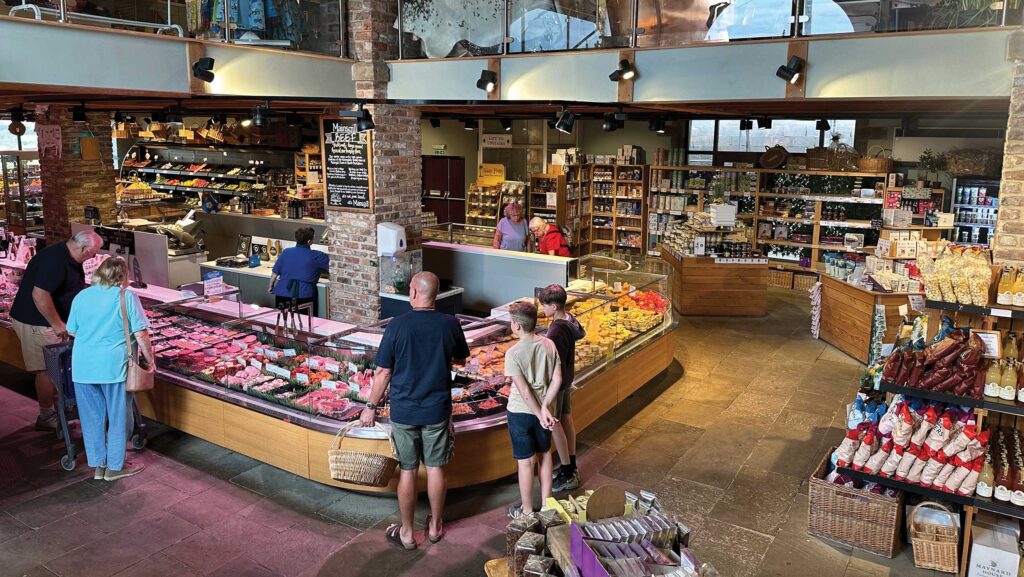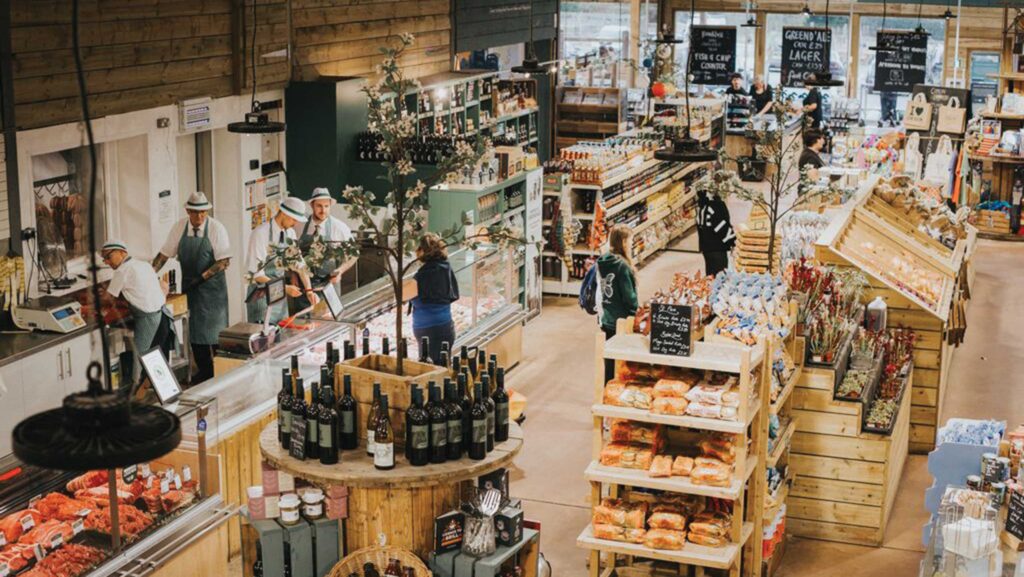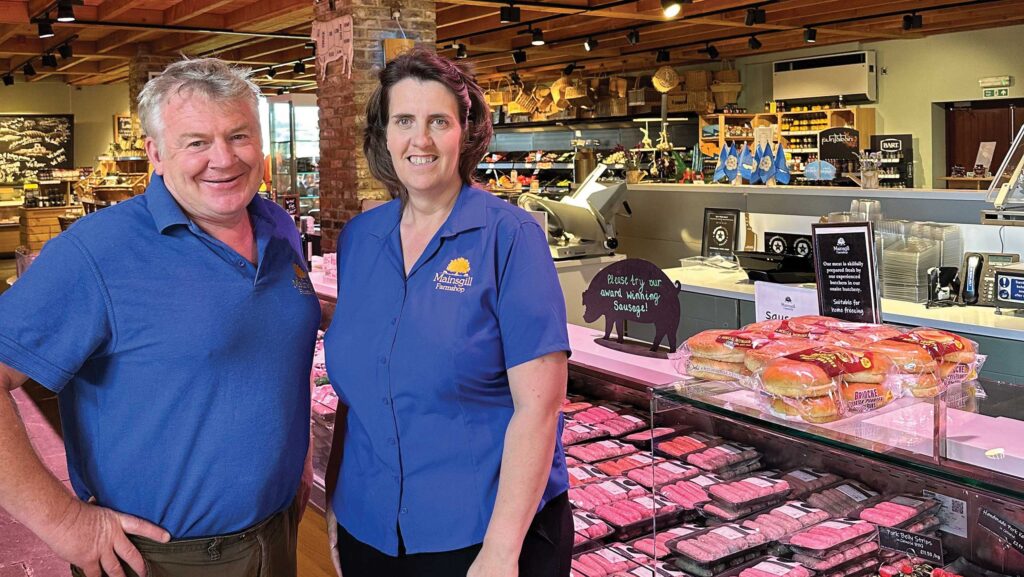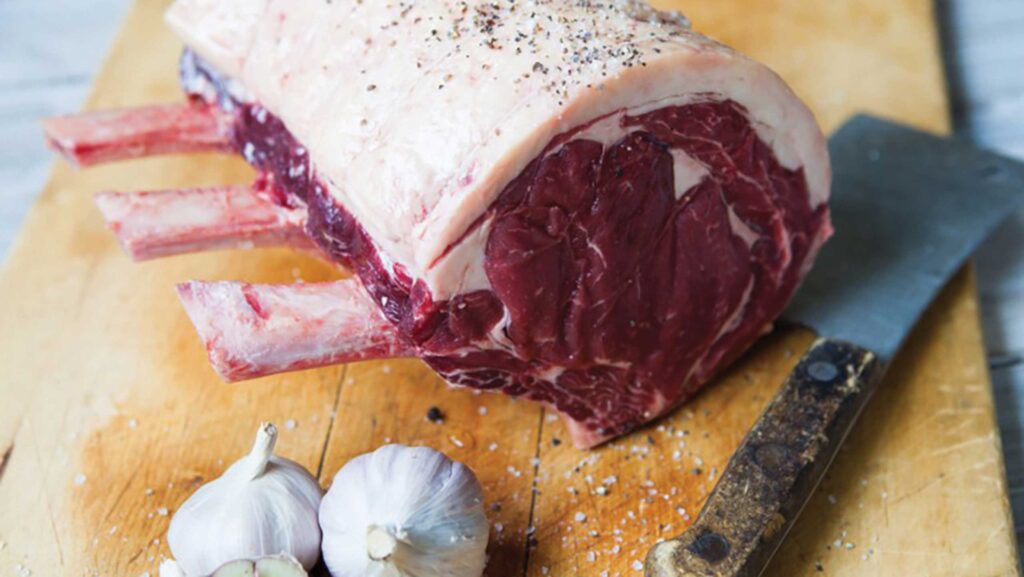Why farm shop success calls for constant innovation
 Mainsgill Farm Shop © Rachel Henshaw
Mainsgill Farm Shop © Rachel Henshaw Cash-strapped consumers and rising costs mean farm shops have to fight for turnover.
They appear to be winning – footfall and revenue are growing for the 300 members of the Farm Retail Association (FRA), and there is a lot of positivity in the sector, says chair Emma Mosey.
“Consumers are really supportive, our experience is that they are supporting farm diversification,” she says, with the publicity about the cut to inheritance tax relief possibly having a positive effect.
See also: Vending option secures added value farmgate sales
The numbers
- 1,574 Farm shops in UK
- £1.4bn Estimated value of retail sales in farm shops (2022 estimate, Harper Adams research)
- 25,000 Employees
Minskip Farm Shop: Yorkshire
Emma and her husband Ben run Yolk Farm at Boroughbridge in Yorkshire, where retailing began more than 50 years ago.
The Moseys bought the business, which includes 6.5ha of land, eight years ago.
Like many, they have added to their original farm shop operation, opening their specialist egg restaurant in April.
Attracting and keeping staff is one of the key challenges, although many farm shops have long-standing employees. When Emma and Ben started the business there was just the two of them.
Now there is a staff of 35 and Emma says that while there is some turnover, having a strong core management and supervisory team is key.
“You have to pay well, give people autonomy, listen to and act on their ideas. You have to give that freedom and reward,” she says.
Loyalty and discount schemes
Across the FRA membership, innovation is a constant. Loyalty and discount schemes are popular and take many forms. Cross-fertilisation between enterprises can work well, says Emma.
“For example, a money off coupon or a free coffee in the café.”
Rising costs are a challenge, in particular April’s increase in the minimum wage, higher national insurance (NI) charges and business rates.
The restaurant usually opens only during the day, but recently a family-friendly pizza night has been established on Fridays.
A pizza oven costing £5,000 was needed for this but has proved a worthwhile investment, says Emma. “That’s paying our NI bill!”
A second pizza night on Saturdays is planned.
For many, the customer base is changing too, says Emma.
“The target market is shifting, it was generally the baby boomer generation and the ‘grey pound’ and that’s still the case.
“Because of pension tax changes in the Budget, the butchers are doing well at the moment, but there is also a shift to families with younger children.”
Greendale Farm Shop: Devon

© Greendale Farm Shop
Greendale Farm Shop near Exeter in Devon benefits both from loyal local customers and visitor trade.
Head of retail and hospitality Tom Lomas says it’s tough for farm shops. “We’re having to look at unique ways to increase footfall and dwell time,” he says.
This includes hosting visiting external events such as an inflatable adventure park and a 125m water slide. “That way we don’t have to invest ourselves, but we take a rent from the attractions.”
Within the shop, it’s not so much a case of cutting costs, but making more of what is already there, he says. This means everything is constantly under review.
“It’s what should be happening anyway,” says Tom, “but we’ve really ramped up the focus on this – for example, which wholesalers or suppliers are better value, do we need to replace things or work differently, is there waste that the chefs might be able to use?”
That process led to the removal of bought-in externally branded ready meals and to the shop producing its own range.
“We have a lot of talented people who have been at the shop a long time and are really invested in it,” says Tom.
“Now we have three people producing our own ready meals and customers can talk to them about the ingredients.
“For example, our moussaka contains only what a moussaka should contain, and the label is much shorter than a supermarket moussaka label.”
Provenance
Interest in the provenance of food continues to rise.
Customers are still quality focused, and while spend per visit may have fallen, the health and nutrition aspects of food are increasingly of interest and, more recently, its environmental impact, says Tom.
The shop benefits hugely from being able to show that the farm’s beef herd is just a few hundred metres away, supplying an important element of the shop’s wide offering.
The most recent investment is in an upgraded smoker and the latest initiative is the Greendale parkrun. This sees about 250 people turn up every Saturday for a 5km run through the farm, bringing extra custom.
Mainsgill farm shop: North Yorkshire

Andrew and Maria Henshaw © Rachel Henshaw
Andrew and Maria Henshaw opened Mainsgill Farm Shop in a converted garage in 1998, moving from Lancashire to farm in their own right on what was then a 23ha holding fattening pigs and beef cattle, also rearing dairy replacements.
Their first purpose-built shop was completed in 2001 and the business has grown hugely since then, covering more than 1,850sq m, with a tearoom expansion and orangery under way.
This will add 460sq m, including a dog-friendly area, which an increasing number of farm shops and attractions are offering.
“People stop off with us on their holidays and they expect to see something different”.
There will also be electric vehicle charging stations, something customers increasingly ask for as they plan their journeys across the trans-Pennine A66.
“You’ve got to keep moving forward,” says Andrew. “It’s a bit like the supermarkets, they don’t stand still, or it gets a bit old hat.
“It does feel as if people are watching the pennies – they might have a bacon sandwich instead of a full meal, they are making the pounds go further.
“We want to offer value, we’re not expensive, if you compare some of the mainstream competition,” says Andrew, citing the cost of dry aged salt sirloin in a well-known supermarket food section at £100/kg.
“We know we’ve got a very good crew, but attracting new people in is a challenge. This is a seven-day-a-week business.”
Andrew is not keen on third- party concessions to expand the offering. “If you’re not in control, you’ve lost control,” he says. “We’ve never had any franchises.”
Kilnford farm shop: Dumfries

© Kilinford Farm Shop
Kilnford farm shop near Dumfries is a specialist butcher and deli.
This year’s minimum wage and NI increases have had a big impact on the employment costs for the business, says general manager Maurice Mcmenemy.
“We don’t pay minimum wage but when it goes up, we have to move up too,” he says.
A proposed business rates rise threatens the future of the operation and is under discussion with the local authority.
Day to day, like many others, Maurice is reviewing everything.
Increased product, ingredient and packaging costs means more operations are being brought in house, with an extension being built so ready meals and side dishes can be made from scratch.
“That way there’s only one business trying to get a margin out of the product, not three,” he says. However, desserts will continue to be supplied by a local business.
Kilnford is also introducing enhanced nutritional labelling including the traffic lights system for everything made in house.
The grey pound is important but these customers are also being stretched by living costs with some helping finance childcare and other costs for their families, says Maurice.
A new social media focus means that as well as marketing through Facebook, Instagram and TikTok are being used to target younger customers and families, with TikTok proving particularly successful.
Adviser’s farm retail pointers
Simon Quinton Smith is a director at chartered surveyor Quinton Edwards, which specialises in advising farm shops and garden centres.
Farm shops continue to grow and generally, the bigger the range, the better, he says, so customers can do a full shop without having to go to a supermarket to top up.
Successful smaller operations generally are those with a specialism such as a very good butchery, he says, considering a butchery an essential element for a successful farm shop.
“Also, catering is vital these days, but some don’t do it very well. It should represent about 25% of turnover.”
For those thinking of starting a farm shop, the best locations are within the catchment of a decent sized ABC1 population which comprises middle class families, says Simon.
Franchises or third-party operators taking space in a farm shop can work well, bringing in extra income, generally with a basic rent plus a turnover-related element.
With regard to this, Simon advises also putting a minimum turnover condition in the lease.
Rents for this type of operation are usually gross, and include the space, heat, light and business rates.
Visiting services such as a once-a-week fish van, or having florist on-site, can also add considerably to the draw of a farm shop.
